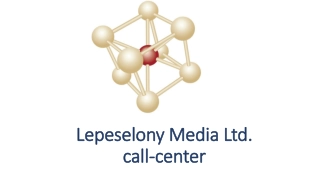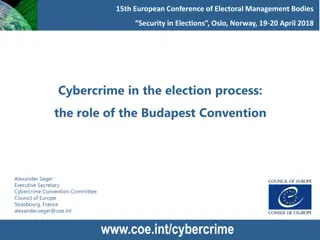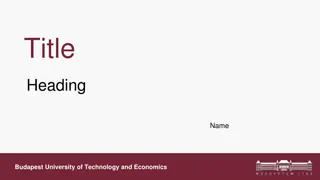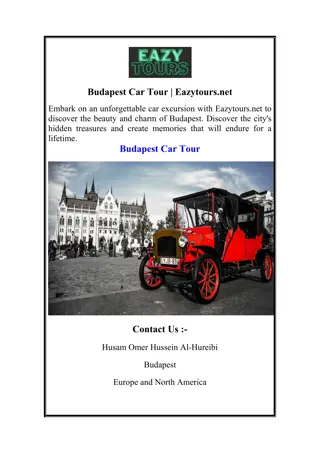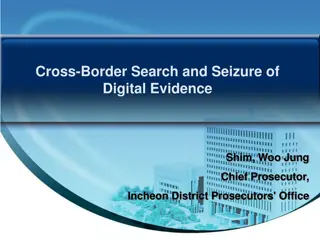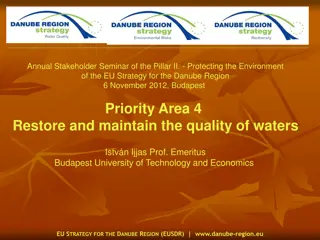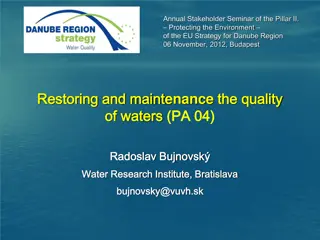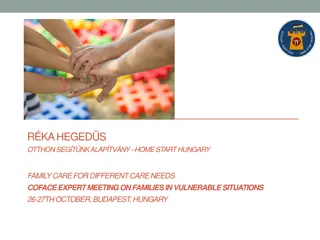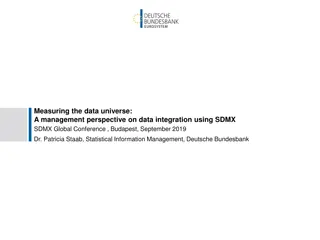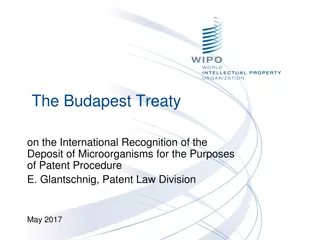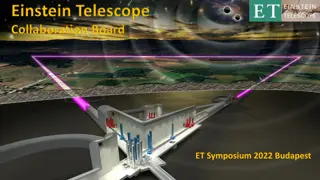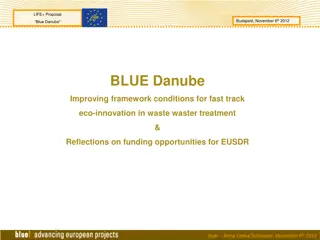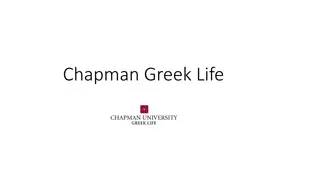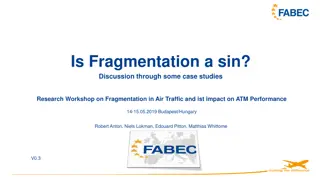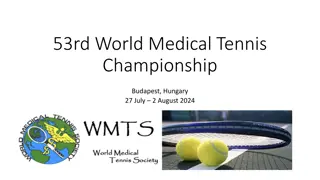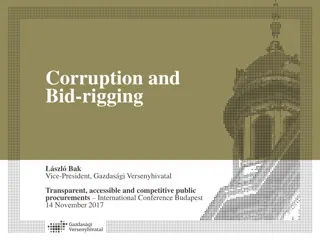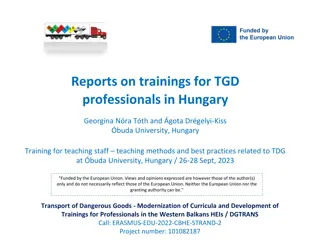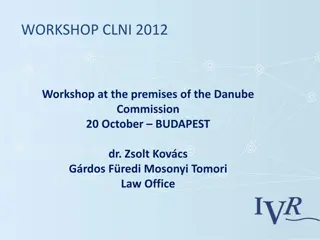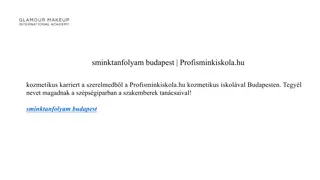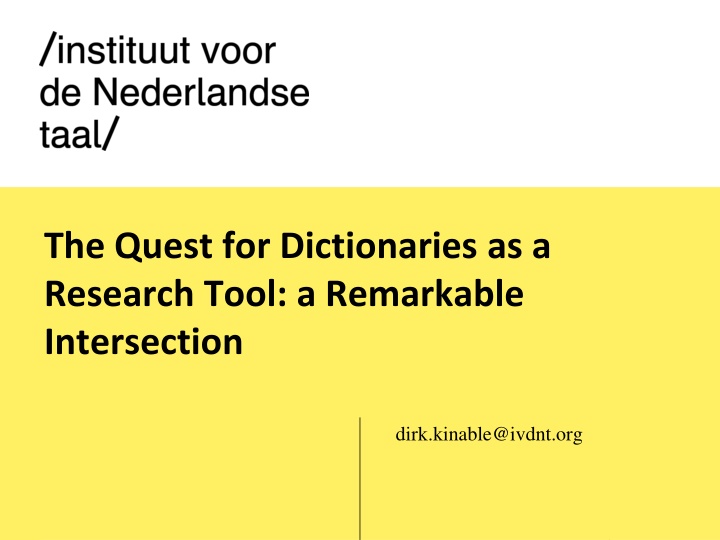
Remarkable Intersection of Dictionaries as Research Tools in Modern Linguistics
Explore the evolution of dictionaries as research tools, from traditional printed formats to interconnected digital databases, influencing text-oriented disciplines. Delve into practical applications, interlinking lexical content, visualizing relationships, and case studies from historical Dutch reference works. Witness how multilingual dictionary portals offer cultural insights and aid in text research methodologies.
Download Presentation

Please find below an Image/Link to download the presentation.
The content on the website is provided AS IS for your information and personal use only. It may not be sold, licensed, or shared on other websites without obtaining consent from the author. If you encounter any issues during the download, it is possible that the publisher has removed the file from their server.
You are allowed to download the files provided on this website for personal or commercial use, subject to the condition that they are used lawfully. All files are the property of their respective owners.
The content on the website is provided AS IS for your information and personal use only. It may not be sold, licensed, or shared on other websites without obtaining consent from the author.
E N D
Presentation Transcript
The Quest for Dictionaries as a Research Tool: a Remarkable Intersection dirk.kinable@ivdnt.org
The Quest for Dictionaries as a Research Tool: a Remarkable Intersection Changes in the concept of a dictionary. Printed dictionaries: traditional vertical order digital, lexical databases: horizontal approach: interconnected lemmas and word meanings Brings the lexicon structure in a specific period to the fore 2
The Quest for Dictionaries as a Research Tool: a Remarkable Intersection Great impact on dictionaries as practical research tools for text-oriented disciplines Opportunities in a distant future or quite readily available? Two main questions: Q1. how to interlink lexical content Q2. how to visualise relationships 3
The Quest for Dictionaries as a Research Tool: a Remarkable Intersection Q1&Q2: best put to practice with regard to dictionaries in the ENeL-dictionary portal by means of a concrete case Many historical, scholarly dictionaries included. Among others, Dutch reference-works 4
The Quest for Dictionaries as a Research Tool: a Remarkable Intersection The Barcelona presentation: Middle Dutch Dictionary: illustrated how a multilingual dictionary-portal interlinking entries, e.g. in the vernacular and in Latin, provides cultural insight across languages and enables to evaluate existing text hypotheses: 14th c. play of Winter and Summer 5
The Quest for Dictionaries as a Research Tool: a Remarkable Intersection Budapest presentation: Diptych: second step: with this dictionary and text as a means of demonstration aim: by addressing Q1 and Q2 providing further insight into the horizontal design of entries in a network structure from a monolingual perspective. including a test for its strength with regard to the development of new views for text research 6
The Quest for Dictionaries as a Research Tool: a Remarkable Intersection The insights presented at Barcelona were based on a lexical database with a still relatively simple semantic structure: Level: synonymy/hyperonymy/hyponymy More refined structures: semantic networks, more specifically: wordnets with the Princeton WordNet for English as its paradigmatic model 7
The Quest for Dictionaries as a Research Tool: a Remarkable Intersection Cornetto builds on the Princeton WordNet model providing a fine-grained set of semantic relations: basic relations: synon., hyperon., hypon., anton., meron. semantical relations with lexical correlates: agent, patient, participant, subevent, cause, location etc. 8
The Quest for Dictionaries as a Research Tool: a Remarkable Intersection This is a way to store the lexicon of a language in a semantic network; it is also highly informative of a specific time and culture. Cornetto: semantic structures for contemporary Dutch For elementary concepts the basic structure of the semantic graphs can be retained and the nodes may be replaced by their Middle Dutch equivalents. 9
The Quest for Dictionaries as a Research Tool: a Remarkable Intersection Filling our wordnet with the Middle Dutch Dictionary and selecting key words from our play (2 criteria: words in texually important extracts and cultural salience): parlement/ strijt fight / camp duel / ere honour / wreken to revenge 10
The Quest for Dictionaries as a Research Tool: a Remarkable Intersection 11
The Quest for Dictionaries as a Research Tool: a Remarkable Intersection the central node of the keywords: strijt/striden a conflict/to fight surrounded by three hyponym synsets and two other semantical relationships, visualising the main options to handle a conflict: 12
The Quest for Dictionaries as a Research Tool: a Remarkable Intersection 1) direct violent confrontation 2) taking the conflict to court 3) revenge by counteraction and retaliation 4) reconciliation after negotiation or agreement. 13
The Quest for Dictionaries as a Research Tool: a Remarkable Intersection Further completion of the nodes with basic relations like antonyms, viz. semantic roles AGENTS, PATIENTS, PARTICIPANTS, SUBEVENTS, CAUSE etc.: a structured vocabulary with an impressive overview of medieval culture 14
The Quest for Dictionaries as a Research Tool: a Remarkable Intersection E.g., gedinge court case : Participants: (secular court) schepene alderman ; baliu/schoutete bailiff ; taelman pleader ; (ecclesiastical court) officiael bishop's official , advocaet lawyer 15
The Quest for Dictionaries as a Research Tool: a Remarkable Intersection E.g., soenen to reconcile : Subevents: mediation/arbitrage; Participants: paisierers/vreders peace-makers E.g., ere honour ; antonym onere/scande dishonour ; words related to their Causes 16
The Quest for Dictionaries as a Research Tool: a Remarkable Intersection Two more ways for horizontal systems of online dictionaries to supply information: linking headwords to concordances from (also non-literary) editions as an extension beyond the example section meta-comment option for adding bibliographic references on word studies related to entries 17
The Quest for Dictionaries as a Research Tool: a Remarkable Intersection Our new-style dictionary provides a term of comparison for the behaviour of our protagonists Winter and Summer It fits in well with the second option of revenge, often chosen after an offence against honour Both represented as rich, powerful, of noble birth 18
The Quest for Dictionaries as a Research Tool: a Remarkable Intersection The purpose of the duel clearly on both sides: sijn ere verwaren to preserve his honour and in sijn ere bliven to remain in his honour Honour is represented injured by insults. Desire for revenge first expressed in the verb wreken by Summer because of haughty language ; Winter puts it into practice by his challenge to a duel: calls Summer a liar for an unfounded claim and throws the gauntlet 19
The Quest for Dictionaries as a Research Tool: a Remarkable Intersection Course of events not only result of fiction: reflects also what could happen when reputation came under serious pressure: archival record 1408 20
The Quest for Dictionaries as a Research Tool: a Remarkable Intersection importance of linked concordances including non- literary sources: entering camp/hantscoe gauntlet relation with historical reality no terms regarding a juridical settlement of conflict, nor the typical vocabulary of judicial duel Duel still represented as a particular fight at the initiative of the opponents 21
The Quest for Dictionaries as a Research Tool: a Remarkable Intersection Ideologically closer to the old spirit of revenge and honour still part of private law Testing the text against our lexical network is also revealing for the final development of the plot: duel is imminent -set at dawn- but eventually it never happens 22
The Quest for Dictionaries as a Research Tool: a Remarkable Intersection It is prevented but not in a way reminiscent of the previous common 14th-century practice when authorities could oblige parties to reconcile: cf. terms for official peace-makers Course of action corresponds to voluntary reconciliation, more specifically voluntary arbitrage 23
The Quest for Dictionaries as a Research Tool: a Remarkable Intersection Correspondences: Among others:Venus s own reserved wordings: I will interfere in this dispute and settle it/ if I have the ability to do so judge imposes judgments using the power vested in him 24
The Quest for Dictionaries as a Research Tool: a Remarkable Intersection The way the conflict is resolved: question to leave the decision to Venus is directed to both opponents: striking recurrence of the verb bliven It appears to be a subevent of soenen to reconcile ; the specialist literature of legal history: defined as a unilateral act of submission: to submit oneself voluntarily or involuntarily to the decision of reconcilers 25
The Quest for Dictionaries as a Research Tool: a Remarkable Intersection Ease with which the protagonists drop all hostility: fits in with the medieval tradition that in case of favourable conditions for one s reputation were present, as request of an esteemed intermediary, honour could be restored by abstaining from violent revenge, showing magnanimity 26
The Quest for Dictionaries as a Research Tool: a Remarkable Intersection Wordnets: the necessary size and structure to assess the added value of search systems with interconnected lemmas for voluminous historical dictionaries Digital interconnection of dictionary-entries and its visualisation allow such progress that an intersection of lexicography and digital humanities has been reached 27
The Quest for Dictionaries as a Research Tool: a Remarkable Intersection This development requires scholars of text-oriented disciplines not to limit the function of historical dictionaries to translation devices As to lexicographers used to a mainly linguistic perspective, it may hopefully make them aware of the need to produce research instruments to investigate efficiently texts into which cultures have crystallised 28

